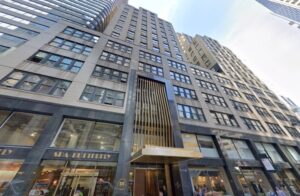Remote Work, Changing Demand Bigger Threats to Office Market Than Recession


Who’s afraid of the big, bad bear?
As it turns out, most people — economists and real estate professionals alike are anticipating a recession in the next 12 months, driven by inflation and the Federal Reserve raising interest rates. The anticipation alone is enough to push New York City’s landlords, tenants and lenders to aggressively negotiate lease terms, take caution when underwriting loans, and just generally buckle down for what’s to come. But most expressed hope that the recession will be quick, if not completely painless.
The pain felt by the office market, however, is much bigger than a recession.
But the “unsustainably hot” labor market, as Fed Chairman Jerome Powell has termed it, is already tightening. JPMorgan Chase cut hundreds of home-lending employees at the end of June. Compass, Redfin, Coinbase and Netflix have all laid off staff. While Powell has said he doesn’t want to put people out of work, he said in mid-June that the economy “really cannot have the kind of labor market we want without price stability.” With a tighter labor market, workers may head back to the office to demonstrate their commitment to work (and desire not to be culled in a round of layoffs) but firms aren’t likely to leverage a downturn to get workers back to their cubicles, Chandan said.
Though maybe Chandan hasn’t run into Jeffrey Gural in a while.
“If a company starts laying people off, that will almost force people to come back,” Gural, chairman of landlord GFP Real Estate, said. “It is more likely [that a boss] is going to cut the people who never come to the office. I know I would.”
Employees who haven’t made a recent appearance at their desks might want to get some facetime with their bosses if the labor market begins to loosen, Craig Deitelzweig, president and CEO of landlord Marx Realty, added.